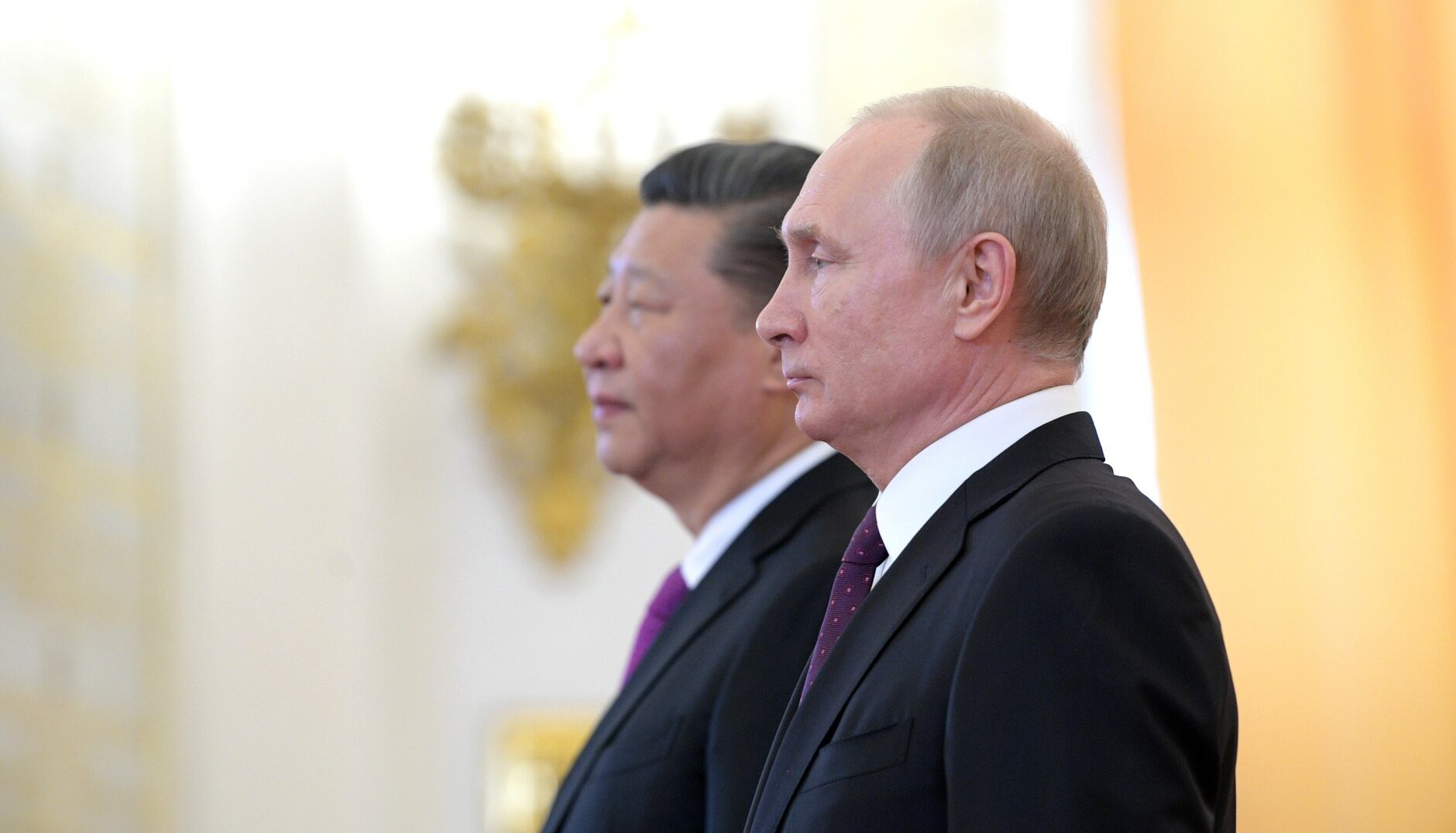What does China think about Russia in Ukraine?

Given the close ties between Russia and China, will sanctions also become a problem for Beijing? The opinion of Giancarlo Elia Valori
Given the close ties between Russia and China, sanctions will also become a problem for Beijing. In recent years, Russia and China have continued to develop relations within the framework of the Treaty of Good Neighborhood, Friendship and Cooperation of 19 July 2001 and cover many areas, including military cooperation. Chinese President Xi Jinping spoke to Russian President Putin more than any other foreign leader last year. The Russian president himself defined relations between the two countries as a model of cooperation in the century. XXI. The latest impetus for an even greater rapprochement of Russian-Chinese positions was the events of 2014, when the West began to impose the first sanctions against Russia due to the return of Crimea to Russia (which had been ceded at the time on a whim of Khrushchev) and the worsening of the conflict in the east of Ukraine.
At the time, Western restrictions on Moscow didn't bother Beijing much, but economic relations have deepened since then. Countries cooperate in the fields of aerospace technologies, the oil and gas industry, chemicals and the aviation industry. Chinese state-owned companies are investing in Russian energy assets. At the same time, there is a dynamic development of Chinese-Russian cooperation in the field of e-commerce. The volume of trade between Russia and China in 2021 increased to a record $ 146.88 billion; exports to Russia increased in 12 months to 67.56 billion dollars, the movement of the flow of goods in the opposite direction to 79.32 billion dollars.
"It may seem that Beijing is waiting and watching developments, but the rapprochement between China and Russia has accelerated and their trade has doubled over the past five years," said Kenneth Curtis, former vice president of Goldman Sachs Asia. All this means that, unlike in 2014, new potential sanctions against Russia could bring a lot of inconvenience to Beijing as well.
“China's compliance with US sanctions against Iran and the DPRK of (North) Korea was a relatively easy decision because both Iran and the DPRK have limited economies. Therefore, the cost of complying with the penalties is not that great. Russia is a different story, it is much larger and is involved in the economy internationally, ”according to a report by the Foreign Policy Research Institute (FPRI) in Philadelphia.
It will depend on China what impact the possible sanctions will have on Russia. As Moscow imports and exports more goods from China than from any other country, any restrictions on the Russian banking and financial system (in particular, disconnection from the Society for Worldwide Interbank Financial Telecommunication) will affect bilateral trade. Therefore, China will have to decide whether to comply with the new sanctions to its own detriment, or to seek alternative ways to interact with Russian partners.
“If the West manages to inflict significant damage on Russia with sanctions, in the event of a crisis in the Asian region, it will be able to use the same leverage against China. But if China helps Russia to mitigate the consequences of these sanctions, the United States of America will lose an important instrument of economic pressure on Beijing ”, reads the FPRI study.
Countering the sanctions could be a clear transition of Russian-Chinese trade towards alternative payment systems: "We would switch to national currencies, we will not change completely, perhaps these sanctions will somehow speed up the process," the Russian ambassador to China told TASS. , Andrei Ivanovich Denisov. According to him, various twists and turns in sanctions cases will in no way hinder the development of Russian-Chinese economic and trade relations.
Both Moscow and Beijing have spent a lot of money developing their own payment systems, but so far there has been no chance to test them in a real crisis. If this mechanism works, it can also be used in trade with third countries, bypassing US sanctions.
This also applies to any export restrictions. The United States of America also announced a possible restriction on the supply of semiconductors to Russia. This could prevent the Russians from accessing the most advanced equipment sold by the United States of America, but most of these devices are either assembled in China or manufactured by Chinese companies. Any US export controls on these models would also leave Chinese companies wondering whether to comply with US export restrictions or find a way around them.
“The GOC could forcefully reject export controls. In that case, the United States of America will have to choose between turning a blind eye to this gap or widening and starting to punish Chinese companies for violations, "said FPRI expert Chris Miller, stressing that otherwise China would pass a country which produces technology and sells it only with permission from Washington.
Miller also writes that China could contribute to the creation of shell companies through which it would continue to supply smartphones to Russia. Therefore, China will protect manufacturers and assemblers from US sanctions. Although even then, the United States of America will be able to respond to such actions.
Be that as it may, neither Beijing nor Russia are interested in a worsening of the crisis in Ukraine, as both countries have their own interests in the region. However, if the West really does decide on the sanctions promised against Russia, then it will be difficult for China to maintain neutrality, at least in terms of observing economic interaction with Moscow.
As you can see, the Ukrainian crisis has different facets and global interactions that go beyond the improvised scenario for media and clichés.
Article published on bankimpresanews.com
This is a machine translation from Italian language of a post published on Start Magazine at the URL https://www.startmag.it/mondo/cina-russia-ucraina-2/ on Thu, 24 Feb 2022 07:22:24 +0000.
